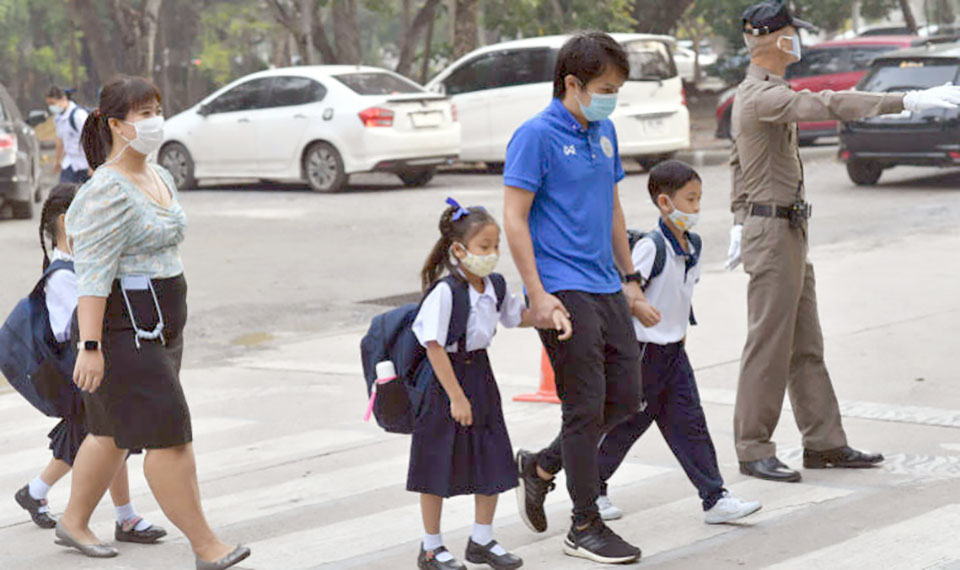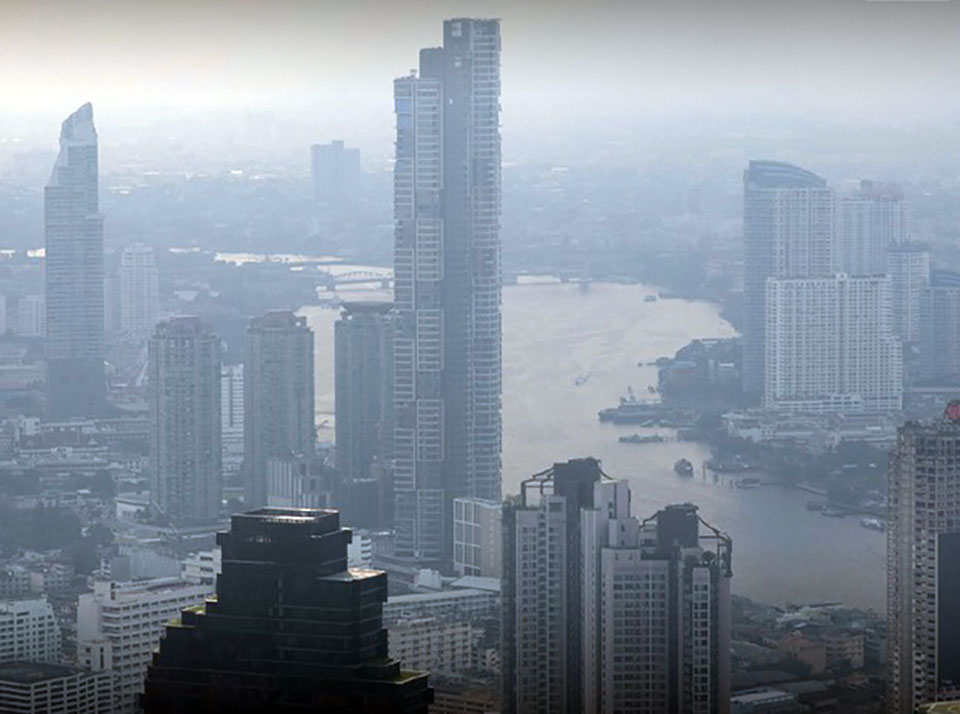
The Ministry of Public Health has issued a warning about the dangers of PM2.5 airborne dust, noting that it can cause rashes and allergies as well as affect the respiratory system.
Ekachai Piensriwatchara, Deputy Director-General of the Department of Health, explained that PM2.5 affects various bodily systems and triggers mild to severe symptoms. These can include irritated and teary eyes, coughing, sneezing, nosebleeds, pink eye, blurry vision, chest pains, difficulty breathing, and fatigue. The latter symptoms are considered serious conditions that necessitate medical attention.
Dr Ekachai urged the public to protect themselves during periods of heightened PM2.5 levels. This is especially true for vulnerable individuals, small children, the elderly, pregnant women and those with chronic diseases. He also advised people to limit or avoid time spent outdoors, or to wear a common face mask or the N95 mask if being outside can’t be avoided.
Additionally, the deputy director-general recommended that schools and nurseries educate students about the dangers of PM2.5 pollution and ways to protect themselves. Outdoor activities such as national anthem assemblies and physical education sessions should also be toned down or temporarily suspended, while schools and nurseries are advised to set up dust-free rooms within their premises.
Dr Ekachai added that, for workplaces or companies, vulnerable individuals might be moved to dust-free rooms when the PM2.5 levels hit level Orange. He also urged businesses to allow people to work from home if possible. (NNT)






